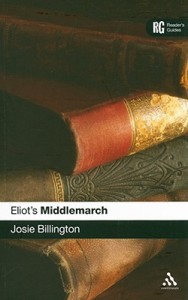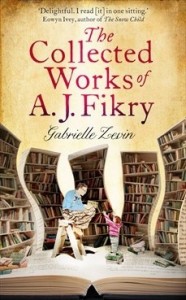 I don’t think I am the only reader out there that loves stats. I am constantly wondering how books fit into my end of year statistics. I even have a page on my blog where you can look at my stats from the past few years. I have a spreadsheet full of all the books I have read so I can easily create pivot tables and graphs. It seems like book bloggers pay close attention to genres, genders and cultural diversity, which is great, but there is something problematic about this. I am not saying we shouldn’t strive to balance out our reading lives but I recently discovered something interesting about my own reading life.
I don’t think I am the only reader out there that loves stats. I am constantly wondering how books fit into my end of year statistics. I even have a page on my blog where you can look at my stats from the past few years. I have a spreadsheet full of all the books I have read so I can easily create pivot tables and graphs. It seems like book bloggers pay close attention to genres, genders and cultural diversity, which is great, but there is something problematic about this. I am not saying we shouldn’t strive to balance out our reading lives but I recently discovered something interesting about my own reading life.
I recently had a book-buying binge and I went into a local indie bookstore and walked out with eight new books. I didn’t look up the authors or read the backs of the books, I just picked books I have heard were good by readers I know and trust. I love the impulse buying part going into a store and just picking up whatever I want. As an experiment try it, see what books you end up with; it reveals a lot about your reading preferences.
Out of the eight books I picked up, two were translations, two female authors, one YA and one graphic novel. I probably can go deeper and looking into where every author was born but I think I’ll stop there. I didn’t even think about diversity or anything like that when I bought the books, I just wanted these books, they were available and I bought them. Two books I bought were ones I’ve read before and plan to read again; I just wanted to make sure I had my own copies of those books.
I agree we should be more diverse in our reading but maybe we should just enjoy reading on impulse rather than closing the gaps. I plan to read more translated novels but maybe a reading challenge is a better way of spreading our literary tastes rather than putting so much pressure on ourselves. I know this is a controversial topic and I am all for diversity, I just want to be free to read what I want when I want, I bought these books and only realised the lack of diversity afterwards.
What do others think? I know there are holes in my reading life but should I be so worried about them? Do you wonder the same thing? Do you worry about the gaps in your reading life and do you have any methods of being stress free?
Note: I’m not saying we shouldn’t be diverse in our reading, I think that is still important. I just think we shouldn’t feel guilty about the books we buy; especially if we don’t pay attention to the author when choosing.

 Coronado, California
Coronado, California City Lights Books
City Lights Books ibrary Hotel
ibrary Hotel Strand Books
Strand Books While in Boston there were two great stores,
While in Boston there were two great stores,  While listening to an episode of the
While listening to an episode of the  I’ve been thinking a lot about my TBR piles lately. I have this weird love-hate relationship and at the moment I’m feeling very stressed over it. You know that feeling you get when you see the piles of books you have on your shelves to read and you get that feeling that you have books coming in faster than being read? How do you deal with that?
I’ve been thinking a lot about my TBR piles lately. I have this weird love-hate relationship and at the moment I’m feeling very stressed over it. You know that feeling you get when you see the piles of books you have on your shelves to read and you get that feeling that you have books coming in faster than being read? How do you deal with that?









 I was thinking about my bookshelves lately, I have a few of them and I never seem to have enough room for all the books on them. Should I cull books I am never going to read? I don’t feel comfortable with culling but sometimes it needs to be done. Does anyone else have a problem with culling? Or does any one know of a way to get over this fear.
I was thinking about my bookshelves lately, I have a few of them and I never seem to have enough room for all the books on them. Should I cull books I am never going to read? I don’t feel comfortable with culling but sometimes it needs to be done. Does anyone else have a problem with culling? Or does any one know of a way to get over this fear. I am not sure if you have noticed but I love books and I love talking about them to excess. I think my wife tends to get sick of my talking about books so I’m lucky to have a book blog where I can focus most of my bookish energy. If my book blog isn’t enough and I still need to talk about books, I often turn to social media. Also there is one other avenue that I use to satisfy my bookish obsessions and that is book clubs.
I am not sure if you have noticed but I love books and I love talking about them to excess. I think my wife tends to get sick of my talking about books so I’m lucky to have a book blog where I can focus most of my bookish energy. If my book blog isn’t enough and I still need to talk about books, I often turn to social media. Also there is one other avenue that I use to satisfy my bookish obsessions and that is book clubs. Genres are always tricky and there are often a lot of problems with assigning a genre. Recently River City Reading (a fantastic blog if you are not following it) was asking about historical fiction which was interesting but I have been thinking about something different. I am curious to know how people choose if a book is contemporary fiction or literary fiction. Most people may agree that literary fiction covers a wide range of different genres but when it comes to contemporary fiction there is a very fine line between the two.
Genres are always tricky and there are often a lot of problems with assigning a genre. Recently River City Reading (a fantastic blog if you are not following it) was asking about historical fiction which was interesting but I have been thinking about something different. I am curious to know how people choose if a book is contemporary fiction or literary fiction. Most people may agree that literary fiction covers a wide range of different genres but when it comes to contemporary fiction there is a very fine line between the two. I’ve often said that big books scare me and I still think that is true but there are exceptions. I’ve found that if I have a reading project and slowly work through a big novel, I not only finish the novel but also tend to enjoy the experience. I’ve done a few reading projects in the past, including making my way through
I’ve often said that big books scare me and I still think that is true but there are exceptions. I’ve found that if I have a reading project and slowly work through a big novel, I not only finish the novel but also tend to enjoy the experience. I’ve done a few reading projects in the past, including making my way through  Do you remember the scene in The Collected Works of A. J. Fikry (known as The Storied Life of A. J. Fikry in the US) by Gabrielle Zevin where A. J. talks to a sales rep about the suspension of disbelief? In this scene they talk about how some novels require a suspension of disbelief. On one end of the scale you have literary fiction were everything is about real life situations, then three quarters of the way down the scale you have
Do you remember the scene in The Collected Works of A. J. Fikry (known as The Storied Life of A. J. Fikry in the US) by Gabrielle Zevin where A. J. talks to a sales rep about the suspension of disbelief? In this scene they talk about how some novels require a suspension of disbelief. On one end of the scale you have literary fiction were everything is about real life situations, then three quarters of the way down the scale you have